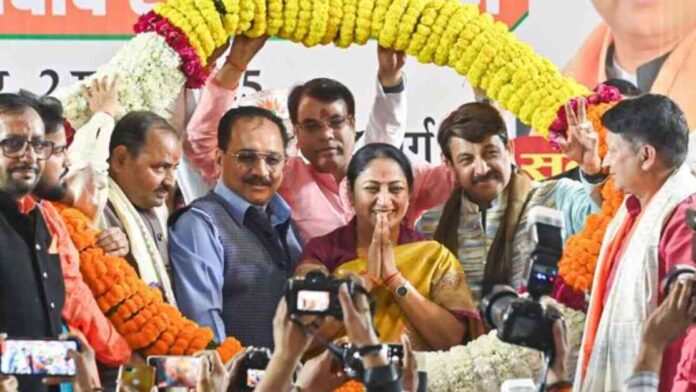Summary: The BJP announces the launch of a ₹2,500 monthly assistance scheme for women in Delhi starting March 8, sparking political tensions as AAP criticizes the delay.
The bustling streets of Delhi were abuzz with anticipation as the news of a new government initiative spread like wildfire. The Bharatiya Janata Party (BJP) had declared the launch of a groundbreaking ₹2,500 monthly assistance scheme for women in the capital city, set to kick off on March 8. This announcement sent shockwaves through the political landscape, igniting debates and criticisms from various quarters.
A Revolutionary Scheme Unveiled
On the crisp morning of March 3, 2025, BJP Member of Parliament, Sanjay Sharma, took the stage to unveil the details of this ambitious scheme. The initiative aimed to provide a monthly financial assistance of ₹2,500 to women in Delhi, empowering them with financial stability and independence. As the crowd listened intently, Sharma highlighted the BJP’s commitment to fulfilling its manifesto promises and supporting women’s welfare in the region.
The announcement was met with a mix of excitement and skepticism. While supporters hailed it as a revolutionary step towards women empowerment, critics raised concerns about the timing and execution of the scheme. The Aam Aadmi Party (AAP) was quick to voice their disapproval, citing delays and questioning the BJP’s motives behind the sudden announcement. As tensions simmered between the two political factions, the public awaited further details and clarifications on the implementation process.
Impact on Society and Political Landscape
The implications of this scheme extended far beyond its monetary benefits. With women constituting a significant portion of Delhi’s population, the initiative had the potential to create a ripple effect in society. Financial independence for women could lead to greater gender equality, economic empowerment, and social progress. Experts weighed in on the significance of such policies in shaping the political landscape and driving social change.
Dr. Meera Singh, a leading social scientist, emphasized the importance of targeted welfare schemes for women in addressing systemic inequalities. She highlighted the need for comprehensive support systems that go beyond financial assistance to create a conducive environment for women’s growth and development. Dr. Singh’s insights shed light on the broader implications of the BJP’s initiative and its potential to transform the lives of women in Delhi.
As the countdown to March 8 began, the streets of Delhi buzzed with anticipation and speculation. The launch of the ₹2,500 monthly scheme for women marked a pivotal moment in the city’s political history, setting the stage for a new era of social welfare and empowerment. With all eyes on the BJP and AAP, the coming days promised to be filled with debates, discussions, and deliberations on the impact of this groundbreaking initiative.
The BJP’s announcement of the ₹2,500 monthly assistance scheme for women in Delhi captured the essence of political dynamics and social change. As the city braced itself for the implementation of this transformative policy, the echoes of empowerment and progress reverberated through the corridors of power and the streets of everyday life. The stage was set for a new chapter in Delhi’s political saga, with women at the forefront of change and empowerment.

















